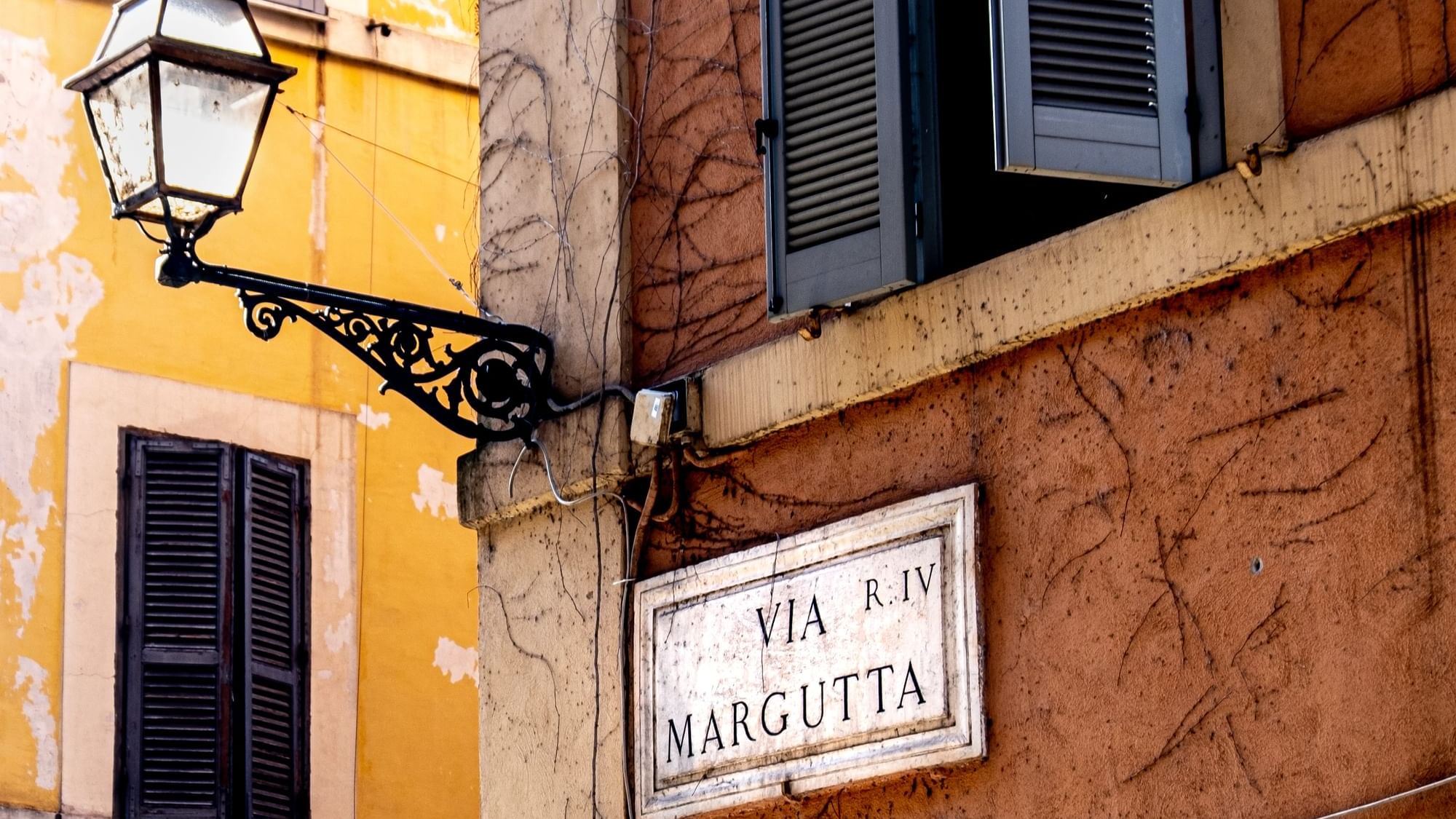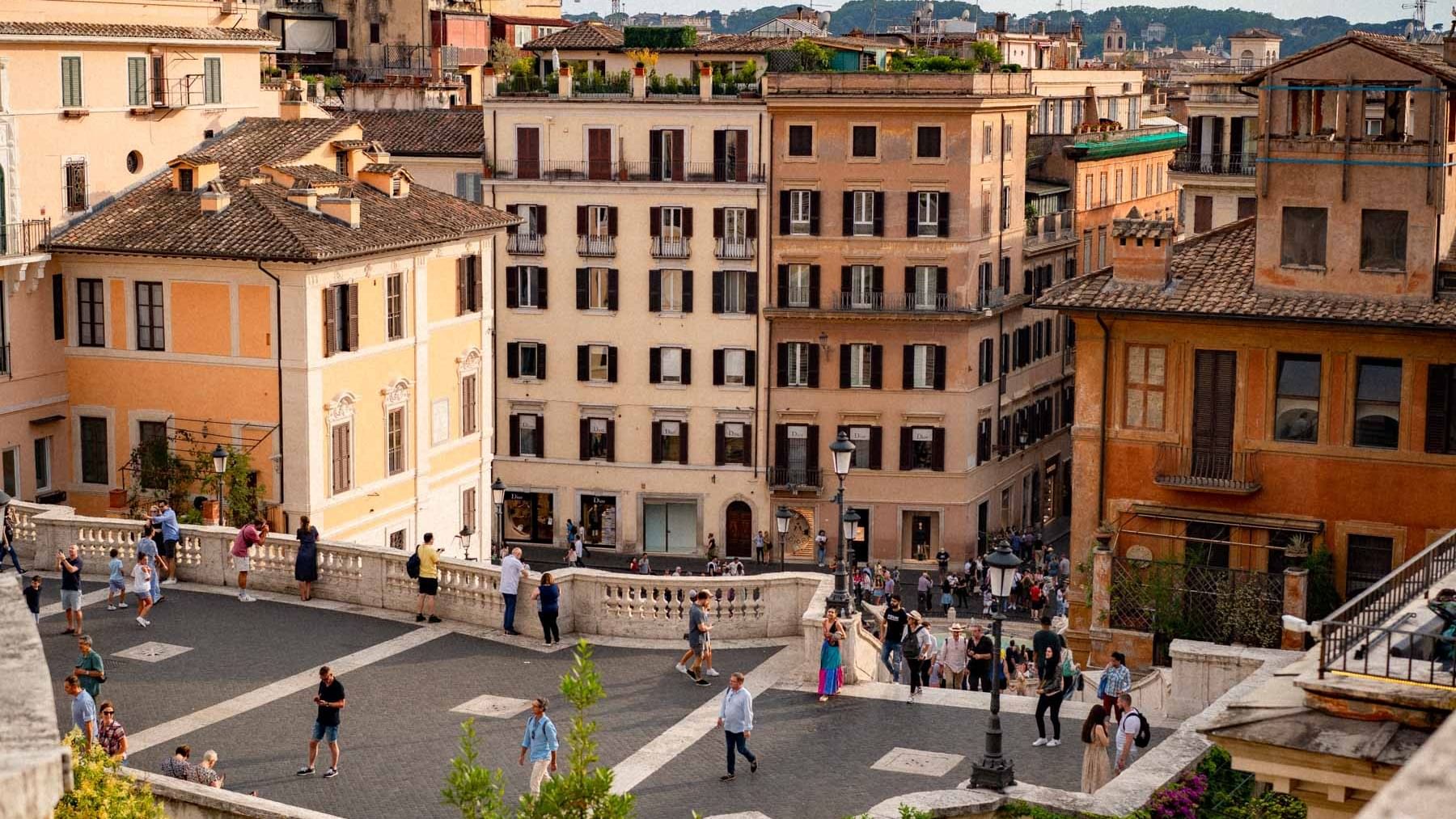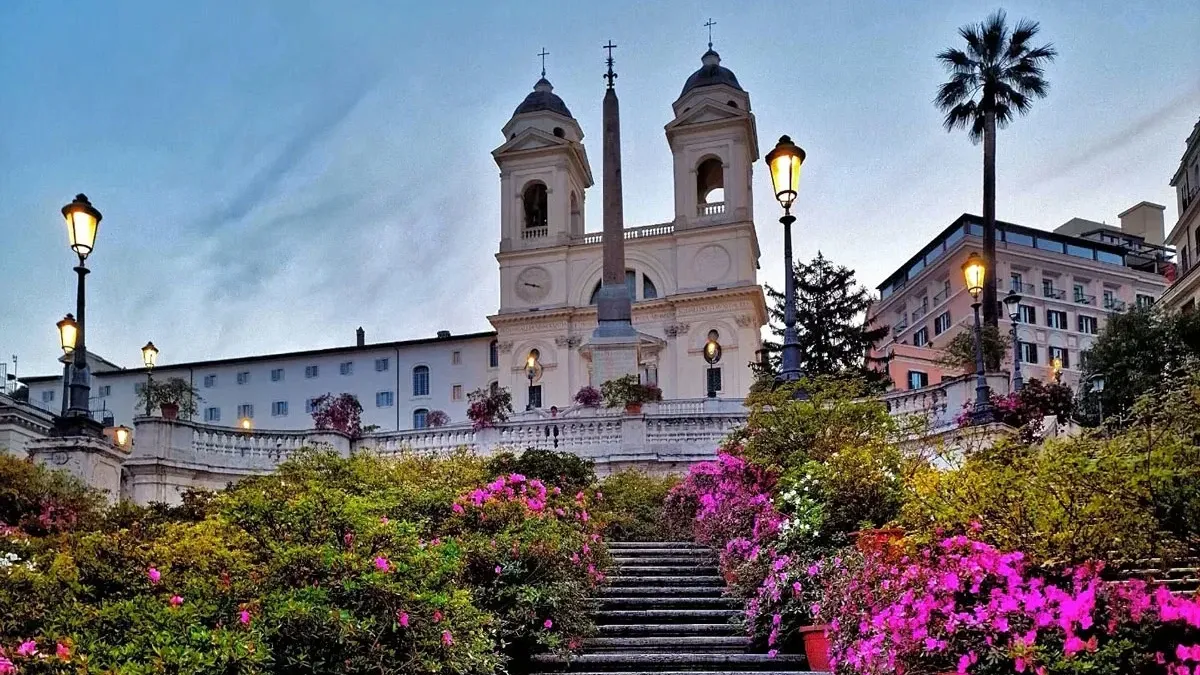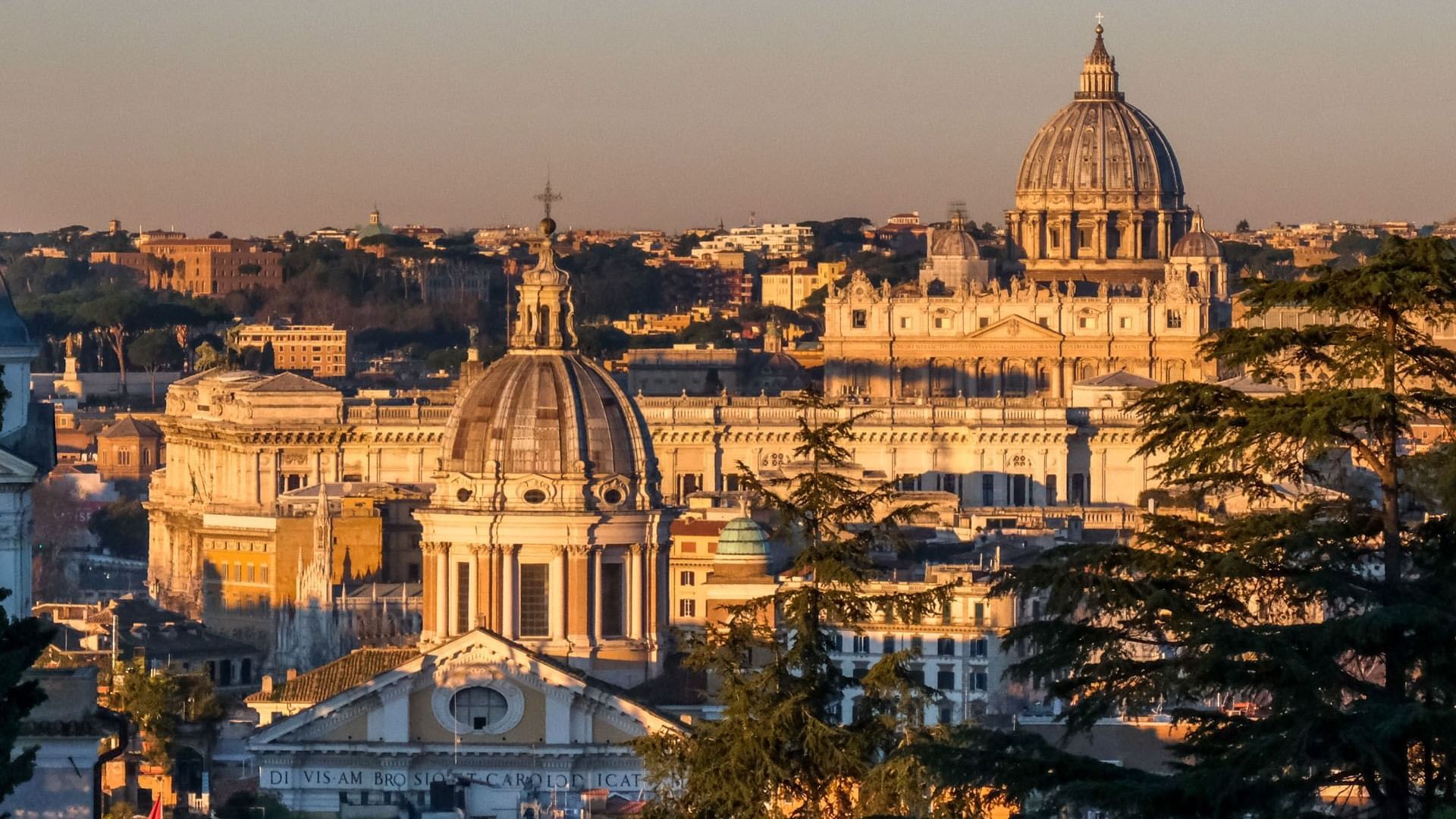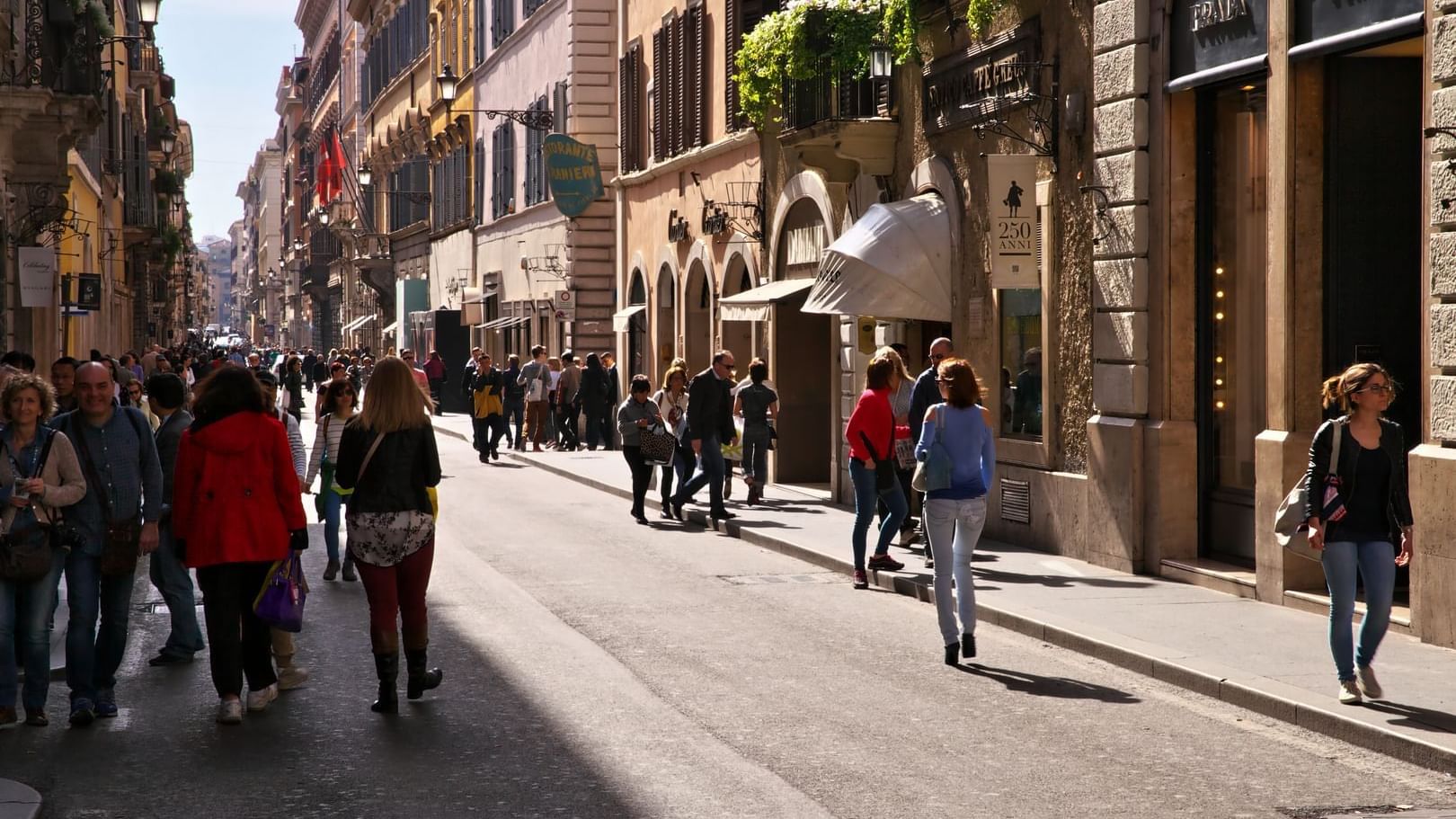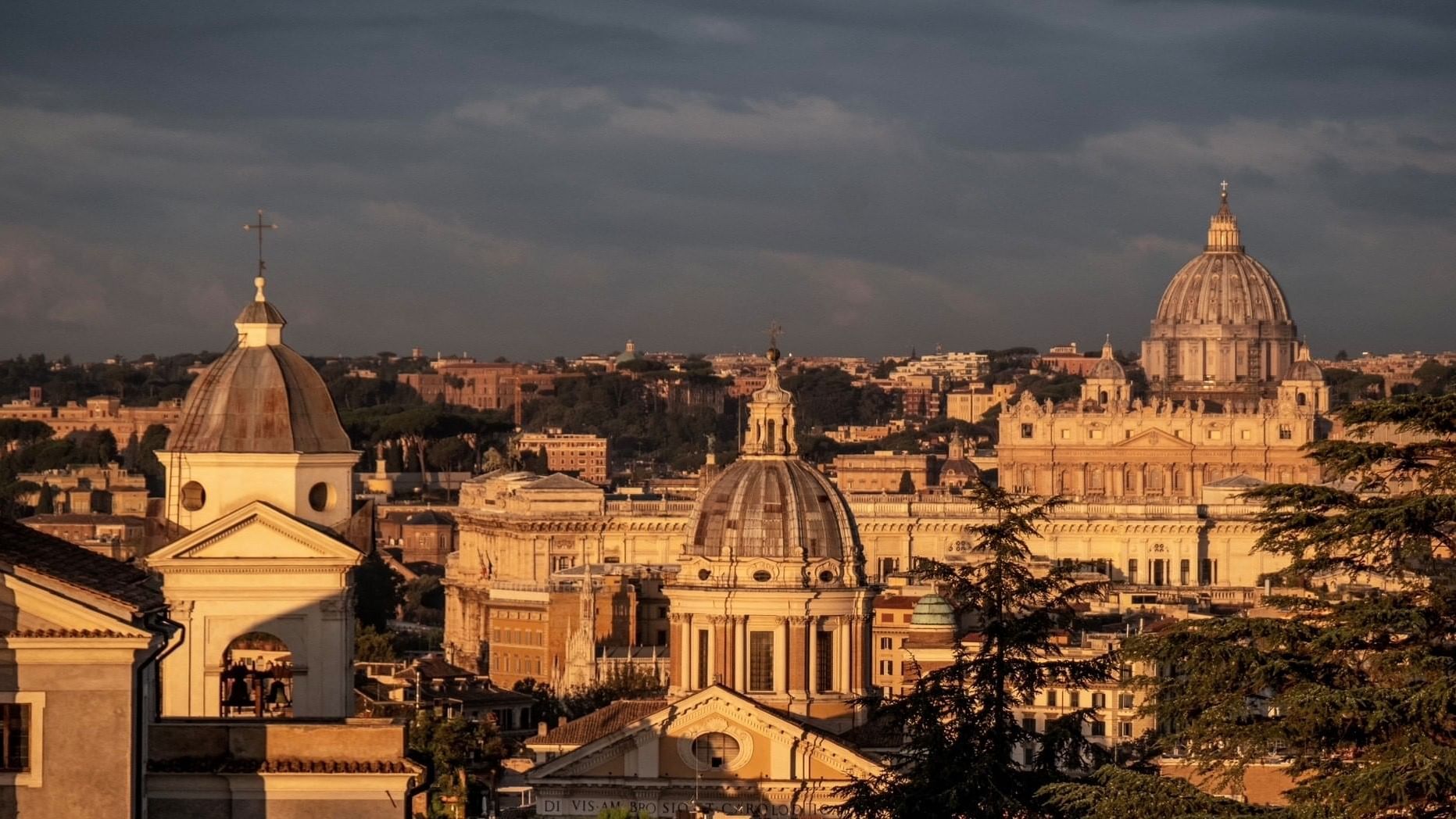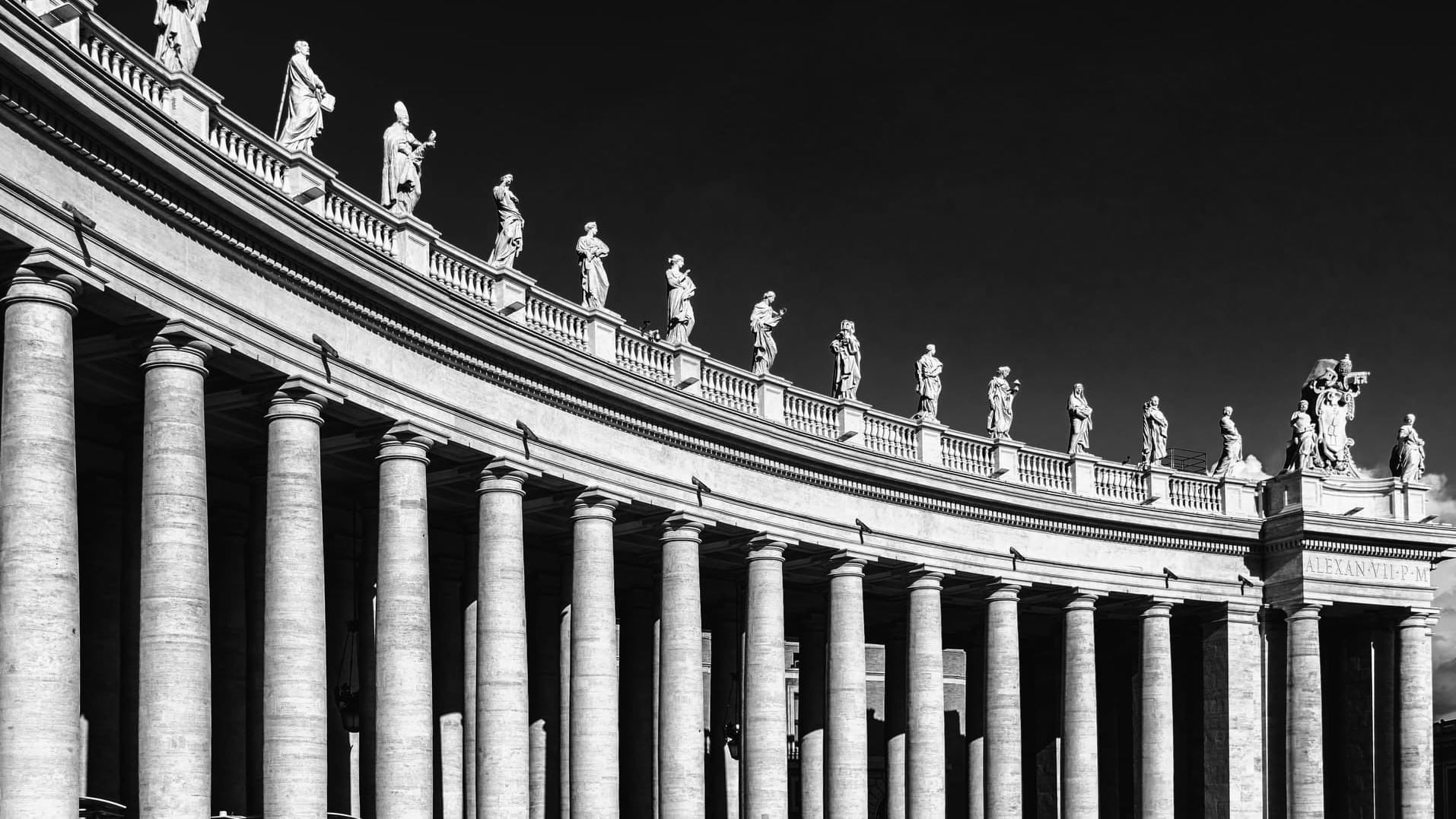Via Margutta is one of Rome’s most enchanting streets, hidden between the Spanish Steps and Piazza del Popolo. Known as the historic artists’ street, this ivy-covered lane offers a quieter, more intimate side of the city. With its ateliers, galleries, and cinematic past, Via Margutta reveals Rome at a slower, more poetic rhythm — just steps from the Tridente.
A Street Apart, Between Two Icons
Tucked between Piazza di Spagna and Piazza del Popolo, Via Margutta feels like a world apart. Beneath a canopy of ivy and the quiet shadow of Villa Borghese, this three-block cobblestoned lane moves to a different tempo — intimate, artistic, and irresistibly romantic.
Once a medieval alleyway lined with stables and storerooms, Via Margutta transformed in the 19th century when artists from across Europe discovered its light and calm. By the early 1900s, it had become Rome’s creative heart, home to painters, sculptors, writers, and filmmakers. Today, its bohemian spirit endures through galleries, antique shops, ateliers, and refined boutique addresses.
A Self-Guided Walk Along Via Margutta
Exploring Via Margutta is best done on foot, slowly, without agenda. Begin at Margutta 19, our five-star haven where contemporary comfort meets artistic heritage. Step outside, turn left or right, and you’re walking in the footsteps of legends.
Via Margutta 110 — Fellini’s Rome
A discreet plaque marks the former home of Federico Fellini and Giulietta Masina, two of Italy’s most beloved cinema icons. Nearby, Fellini’s favorite café — Bar Canova on Piazza del Popolo — still hums with local life and cinematic nostalgia.
Via Margutta 53B — La Bottega del Marmoraro
Founded in 1967, this marble workshop remains one of Rome’s most charming artisanal addresses. The craftsman still engraves witty or poetic inscriptions on small marble plaques — perfect for personalizing a Roman memento that feels both timeless and playful.
Via Margutta 51 — Roman Holiday
Film lovers will recognize this private residence from Roman Holiday, where it was portrayed as Gregory Peck’s apartment. Decades later, admirers still pause here, drawn by the quiet glamour of classic cinema.
Via Margutta 54 — Picasso’s Roman Chapter
Once the courtyard of the noble Moncada family, this address now houses Margutta 54, one of our refined suites. In the early 20th century, more than 1,800 artists passed through this building — among them a young Pablo Picasso, who lived and worked here during his Roman period.
Fontana degli Artisti — The Sound of the Street
Created in 1927 by Pietro Lombardi, the Fontana degli Artisti celebrates Via Margutta’s creative soul. Sculpted masks and brushes spill gentle water into a small basin, providing the street’s soundtrack — simple, serene, and timeless.
Just Beyond Via Margutta
At the top of the street, turn right onto Via Alibert until it meets Via del Babuino, one of the three elegant arteries of the Tridente.
Fontana del Babuino & Caffè Canova Tadolini
The Fontana del Babuino, a curious statue of Silenus once mocked for its awkward form, gave Via del Babuino its name. Just behind it, step into Caffè Canova Tadolini — a former sculpture atelier where marble figures seem to watch over your cappuccino.
Piazza di Spagna & the Spanish Steps
Turning left brings you to the iconic Spanish Steps. Visit the Keats-Shelley Memorial House, or cross the square to Babington’s Tea Room for a touch of Edwardian charm — another reminder of Rome’s cosmopolitan past.
Concierge Tip: Via Margutta at Dusk
As evening light softens, return to Via Margutta for an aperitivo at EMME Restaurant, hidden behind ivy-draped walls in a secret garden courtyard.
Our concierge can also arrange bespoke walking itineraries or private access to nearby artist studios — the kind of experience that turns a stay into a story.
The Soul of Via Margutta
Via Margutta may be short, but it contains centuries of beauty and imagination. It’s a street that invites you to slow down, to wander, and to fall in love with Rome all over again.
For curated itineraries or bookings at Margutta 19 and Margutta 54, contact us at info@romeluxurysuites.com.


